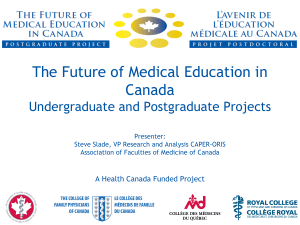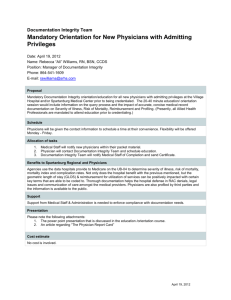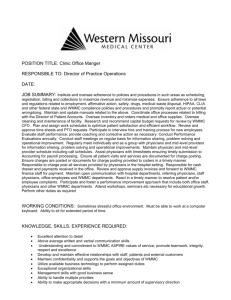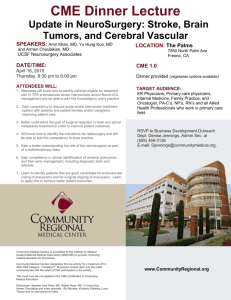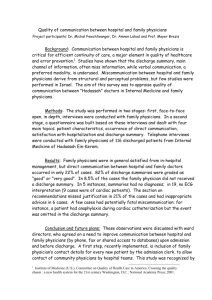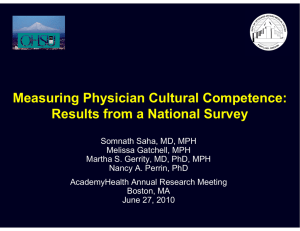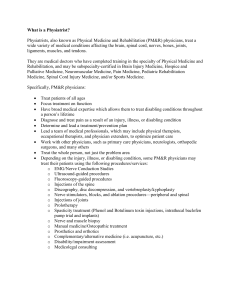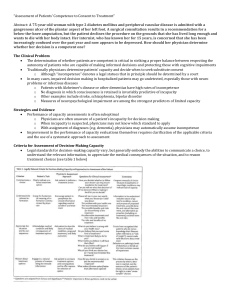Canmeds roles and Triple C for Faculty
advertisement
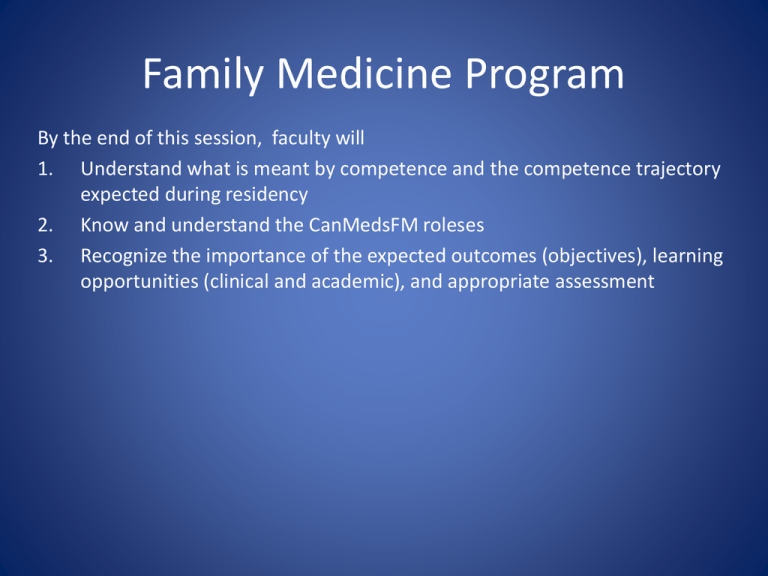
Family Medicine Program By the end of this session, faculty will 1. Understand what is meant by competence and the competence trajectory expected during residency 2. Know and understand the CanMedsFM roleses 3. Recognize the importance of the expected outcomes (objectives), learning opportunities (clinical and academic), and appropriate assessment Competence: “THE ABILITY TO DO SOMETHING SUCCESSFULLY.” Competence Trajectory Benchmarking Document 1. Comprehensive Care 2. Continuing Care & Education 3. Centered in Family Medicine TRIPLE “C” Competency-based CURRICULUM 8 The Triple-C Competency Based Curriculum Comprehensive • Curriculum supports the learner to achieve the full range of competencies required for a graduating physician • Competencies - defined by CanMEDS-FM The Triple-C Competency Based Curriculum Continuity • Continuity of care - fundamental to family medicine • Continuity of education: – Learning environment – Supervision – Curriculum The Triple-C Competency Based Curriculum Centred in FM • Family medicine controls/dictates the curriculum • Learning context - family medicine focused, family medicine teachers • Learning content - family medicine relevant Family Medicine Expert Family physicians are skilled clinicians who provide comprehensive, continuing care to patients and their families within a relationship of trust. Family physicians apply and integrate medical knowledge, clinical skills and professional attitudes in their provision of care. Their expertise includes knowledge of their patients and families in the context of their communities, and their ability to use the patient-centred clinical method effectively. As Family Medicine Experts they integrate all the CanMEDS- Family Medicine (CanMEDS-FM) roles in their daily work. Communicator As Communicators, family physicians facilitate the doctor-patient relationship and the dynamic exchanges that occur before, during, and after the medical encounter. Collaborator As Collaborators, family physicians work with patients, families, healthcare teams, other health professionals, and communities to achieve optimal patient care. Health Advocate • As Health Advocates, family physicians responsibly use their expertise and influence to advance the health and well-being of individual patients, communities, and populations. Scholar As Scholars, family physicians demonstrate a lifelong commitment to reflective learning, as well as the creation, dissemination, application and translation of knowledge. Professional As Professionals, family physicians are committed to the health and well-being of individuals and society through ethical practice, profession-led regulation, and high personal standards of behaviour. Manager As Managers, family physicians are central to the primary health care team and integral participants in healthcare organizations. They use resources wisely and organize practices which are a resource to their patient population to sustain and improve health, coordinating care within the other members of the health care system. Comparison of FM-Centered and Traditional Curriculum Characteristic Teachers Traditional Experts in specialized area Type of Learning Development of “miniPromoted experts” in successive fields; Discontinuous Impact on Residents Family Medicine centred Family medicine experts; Experts in generalism Integrated learning in longitudinal manner; application to FM At times marginalized; Sense Understanding of unique skills; of inferior skills sense of professional identity Clinical Experiences • Carefully selected Family medicine oriented specialty experiences – Explicitly family medicine oriented – Discipline-specific objectives – Site-specific (based on local resources) 20 Curriculum Design CanMEDS-FM Roles and Competencies Curriculum Goals Create the curriculum Measure progress Family Medicine-Centred LEARNING OPPORTUNITIES Clinical Experiences Academic Program Other Activities with Specific Outcome Objectives INTEGRATED LEARNING STRATEGIES ASSESSMENT Identify and categorize outcomes RESOURCES Clinical Teaching Materials 21 Assessment Competency-based evaluation system, using : – Field notes/video reviews – Procedure log – Portfolios – Self-assessment tool 22 Evaluation Objectives • • • • • Clinical Skills Patient Centred approach Communication Professionalism Selectivity

